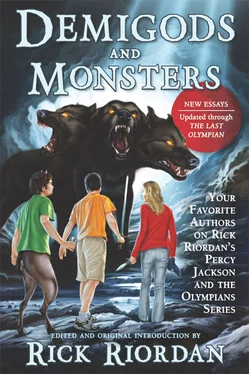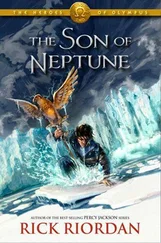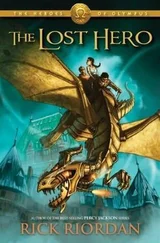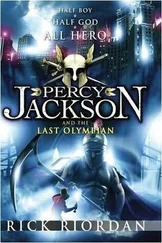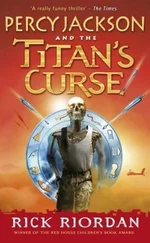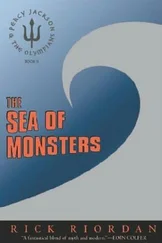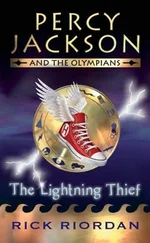(See Sphinx)
Ogygia
Calypso’s island home, where Odysseus washed ashore after his men perished. There is much speculation regarding Ogygia’s location. Some associate Ogygia with present-day Gozo, in the Mediterranean Sea. Others associate Ogygia with the lost Atlantis.
(See Calypso)
Ophiotaurus
Hybrid monster whose front resembled a bull’s and whose rear resembled a serpent’s. This creature, which was among Gaia’s weirdest offspring, became an ally of Zeus and was killed with an adamantine axe by Briares, one of the Titan’s allies, during their war against the gods of Olympus. The Ophiotaurus’ entrails, when set alight, produced a fire so great that it could have destroyed any of the gods, even Zeus. After the Ophiotaurus’ death, it was placed by a grateful Zeus in the heavens as the combined constellations Taurus (bull) and Cetus (whale).
Oracles
Places where the Greeks asked advice from the gods. There were several important oracles: Dodona in northwest Greece, reputedly the oldest oracle, where Zeus spoke from a grove of sacred oak trees; the island Delos, where Apollo was honored; Siwah, in the western desert of Egypt, where Amon, the Egyptian equivalent of Zeus, was worshipped, and which Alexander the Great visited in 331 B.C.; and above all the Pythian Oracle of Apollo at Delphi, the most sacred site in the Greek world.
(See Delphi, Python)
Orpheus
Son of the god Apollo and the Muse Calliope. Orpheus was the archetypal poet, whose music had magical powers. He accompanied Jason and the Argonauts on their quest for the Golden Fleece, and proved useful when his music was able to refloat their ship when it stranded, and when he was able to counter the song of the Sirens with his own, thus saving the ship’s crew from certain death. He loved his wife, Eurydice, so deeply that when she died from a snakebite, he descended to the Underworld. His singing charmed the ferryman Charon, the infernal watchdog Cerberus, and even Hades himself. The god agreed to let Eurydice return with Orpheus provided he did not look back at her until they had left the Underworld. But he could not resist glancing round at her on the long path toward daylight, and so lost her forever. Grieving, he retired to the wilderness, where his music charmed the animals. Still mourning Eurydice, he spurned all women, until the Maenads, enraged by his celibacy, tore him to pieces. However, his head, still singing, floated over the waters to the island of Lesbos. Many mystical poems about immortality, written after his death, were later attributed to him.
(See Cerberus, Maenads, Sirens)
Orthus
Two-headed dog owned by Geryon. Orthus was the brother of Cerberus, the two-headed dog that guarded the gates of Hades. He guarded Geryon’s magnificent red cattle. He was slain by Hercules.
(See Eurytion, Geryon)
Ouranos
Divine personification of the starry sky, also known as Uranus. The son of Gaia, the earth goddess, he was also her husband. They had twelve sons, the Titans, one of whom, Kronos, castrated his father and threw his genitals into the sea. From the resulting foam was born Aphrodite, the Olympian love goddess.
(See Aphrodite, Gaia, Oceanus, Titans)
P
Pan
Rustic god, son of the Olympian messenger god Hermes and a nymph. He was the patron god of shepherds, woods, and wild animals, and also of goats and sheep. Born with goat-like cloven feet, horns, and legs, Pan haunted the woods and pastures of Arcadia (a wild part of southern Greece), playing his pan pipes, or syrinx , that he had cut from reeds. He loved and pursued several nymphs, including Echo. The Athenian runner Phidippedes, on his way back from begging Sparta for help against the invading Persians, encountered Pan, who promised Athens victory. When the Athenians won—the god induced “panic,” which the Greeks considered to be a special power of Pan’s, in the Persian ranks at the battle of Marathon—the city built a temple to him. Pan’s name— pan means “all” in Greek—later led to some Greeks’ belief that he must be the god of all things, and they worshipped him as the one true god of all the universe.
(See Nymphs, Satyrs)
Pandora
The first woman to walk the earth, created on Zeus’ orders as a punishment for mankind after Prometheus gave them fire stolen from the gods. By some accounts, the god Hermes gave her a golden box (which is also sometimes depicted as a jar or pithos ) upon her creation and told her not to open it, instilling in her the trait of curiosity and ensuring that she would later open it. When she married Epimetheus, either he or Pandora (depending on whom you ask) eventually succumbed to temptation and opened the box, releasing the ills it contained upon the world. Only Elpis, the spirit of Hope, remains in the bottom of the box, giving humanity a reason to continue living.
(See Elpis, Epimetheus)
Pankration
An Ancient Greek fighting style resembling a blend of boxing and wrestling. It is said that Hercules and Theseus created this form of martial arts, which Theseus used to defeat the Minotaur in the Labyrinth. Pankration was also an event in the Olympic games, and part of combat training for Greek soldiers.
Pasiphae
Wife of Minos, king of Crete. Minos prayed for a specially fine bull to sacrifice to the sea god Poseidon, but then decided to keep it for himself. Angered, Poseidon made Pasiphae fall in love with the bull. To consummate her passion, she got Daedalus, the Athenian master craftsman, to build a cow in which she lay to seduce the bull. From this monstrous mismatch was born a monster, the half-bull, half-man Minotaur, who was hidden away in the Labyrinth.
(See Ariadne, Labyrinth, Minos, Minotaur)
Pegasus
Immortal winged horse that sprung from the severed head of Medusa. Tamed by the hero Bellerophon with the aid of a gold bridle given him by the goddess Athena, Pegasus carried Bellerophon on his mission to kill the chimera. Pegasus could create springs by stamping his foot—doing so caused water to spring forth from the earth.
(See Hippalektryons, Medusa, Perseus)
Peleus
Son of Aeacus and Endëis. Peleus was a friend of Hercules, and served with him on his quest for the Golden Fleece. After the death of his first wife, Antigone, whom he accidentally killed, he married the nymph Thetis. Achilles was their son.
(See Nereids)
Perdix
Daedalus’ nephew and apprentice, credited with creating the first saw. Athena turned Perdix into a partridge in order to save him when Daedalus pushed him from a tall tower out of jealousy of the boy’s ingenuity.
(See Daedalus)
Persephone
Daughter of Demeter, the goddess of wheat, and Zeus. Persephone’s original name was Kore, meaning simply “girl.” Persephone lived happily on Earth until one day while she was picking flowers, Hades, the god of the Underworld, burst out of the ground and carried Persephone off in his chariot to his miserable realm, where she became his reluctant queen. Demeter frantically searched the Earth for her missing daughter, blighting the crops in her despair until Zeus sent Hermes to persuade Hades to release Persephone. This Hades did, but not before he had tricked Persephone into eating some special pomegranate seeds so that she still had to spend the winter months of each year with him. As queen of the Underworld, Persephone wielded great power, but she was also worshipped when she was above the earth alongside Demeter at the city of Eleusis near Athens, where the citizens had told Demeter about Hades’ abduction of Persephone and so had been rewarded with the divine secrets of fertility.
Читать дальше
